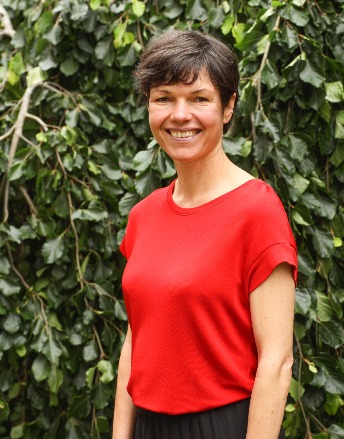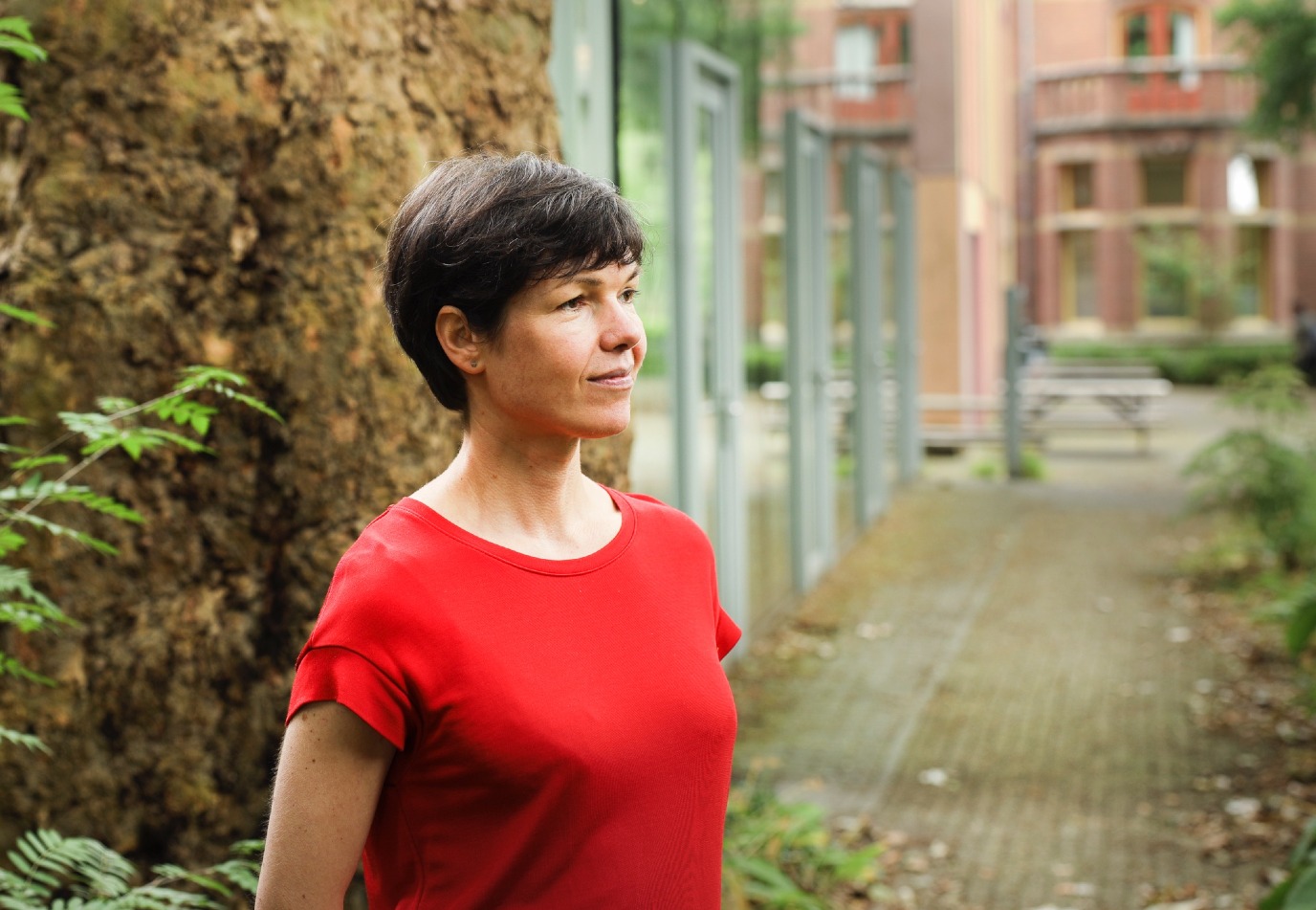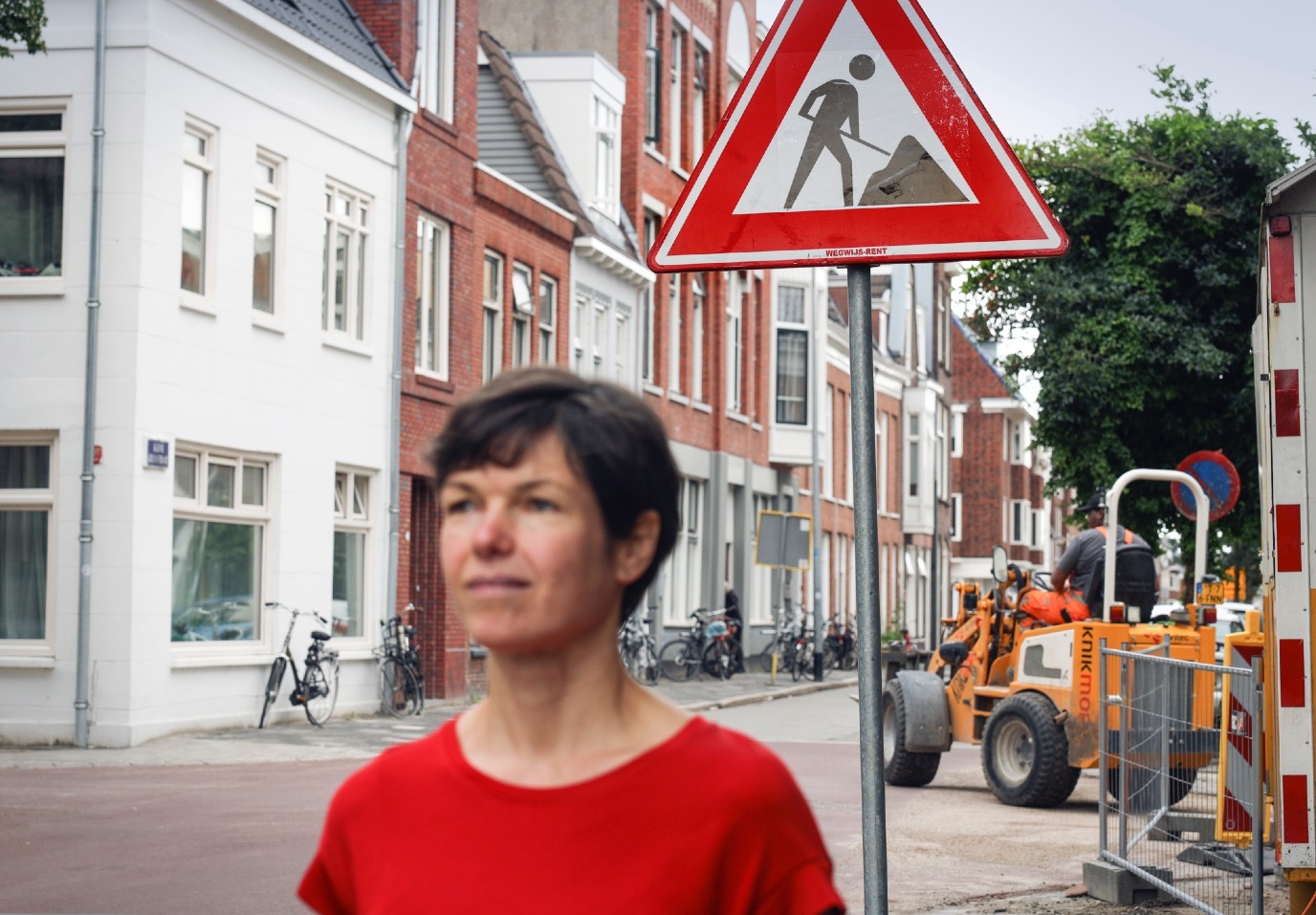Engage citizens in sustainable transitions: ‘The top-down approach doesn’t work’

All too often, sustainable transitions still have to do with bare facts and figures, according to Goda Perlaviciute, an academic at the University of Groningen. Late last year, she was appointed Professor of Public Acceptability of Sustainable Transitions. In her research, Perlaviciute focuses on human values. ‘It is my mission to improve the inclusion of these values in sustainability policy’.
Text: Jelle Posthuma, UG / Photos: Henk Veenstra
Perlaviciute notes that the title of her professorship sometimes needs clarification. ‘My topic is the societal base of support for sustainable transitions. It is a misconception that we are investigating the creation of support for existing policies. That would not work. Instead, I try to understand the underlying values that people have. I do not tell policymakers, “You have to do this to make the current policy acceptable”. What I can do is to point out the concerns that are at play. If these concerns are taken seriously, it might open up space for a sustainable transition’.
Humans and the environment
Perlaviciute is active in the environmental psychology research group. This group is involved with the interaction between humans and the environment. The research in Groningen is known for its aspect of sustainability: how do people influence their environment, and to what extent are people willing to behave in environmentally friendly ways? ‘I conduct research on social aspects of climate and energy policy. These types often focus on technology, finance, and policy, but the main issue is society. What is acceptable to people, and what are their perceptions on transitions?’
Perlaviciute also explicitly links climate policy to society in teaching at the University of Groningen. For example, she notes that the Master’s degree programme in Environmental Psychology focuses on social aspects of climate and energy transitions. In addition, the University of Groningen collaborates with Leuphana University to offer a double-degree Master’s programme, in which students start by studying in Germany and then take the second year in Groningen, with a focus on environmental psychology.
What do people consider important?
For her research, Perlaviciute examines people’s values. ‘Sustainable transitions impact daily life. In the past, the energy supply was extremely top-down. For example, gas was extracted and distributed. Green energy comes closer to people. How we view green energy and sustainable transitions is strongly linked to our values. They determine what we consider important’. As Perlaviciute explains, there are four different types of values: biospheric values (focused on environment and nature), altruistic values (focused on solidarity), selfish values (e.g. money and ambition), and hedonistic values (focused on pleasure and comfort).
There are individual differences in the values that people consider important. Moreover, differences may occur with a given value group. ‘Take wind turbines, for example. There is quite a lot of support for wind energy, especially amongst people with biospheric values. At the same time, however, the living environment is changing, and this sometimes has effects on natural areas. As a result, conflicts can also arise within values: on the one hand, it is good for reducing CO2 emissions. On the other hand, however, people are also concerned about local flora and fauna. We thus cannot base our reasoning on any single value’.

Sense of injustice
For her research, Perlaviciute uses a method to create a value profile based on questionnaires. ‘We explore how people view social transitions (such as the energy transition) from their own personal values. In doing so, we use the value score to identify values that strengthen or diminish support. Values are quite consistent: they don’t change overnight, and they are formed early in life through many processes, including upbringing and education’.
The professor notes that there is not necessarily an increase in resistance to climate policy. ‘There is a sense, however, that climate measures are threatening certain values. If people feel that their values are not receiving sufficient consideration, it can lead them to feel that they are under-represented. People worry. For example, they might wonder what sustainability will mean for their energy prices? A sense of injustice arises: there are winners in the energy transition, and there are losers’.
Values instead of bare facts
One crucial factor in the acceptability of sustainable transitions is public participation. Perlaviciute continues, ‘The question is how citizens can bring their values into discussions on sustainable transitions. When people feel excluded — when their values are not taken seriously — it often leads to resistance. We are used to talking quickly about the facts, focusing on the bare figures: what is the yield in gigawatts, and what are the costs?’
As the professor knows, however, the value discussion is precisely what is involved in true participation. ‘Instead of presenting facts, the focus should be more on asking questions. The fear of noise pollution from wind turbines is not even so much about the number of decibels. It is more about whether we are being taken seriously and our willingness to arrive at a compromise with each other. The more people perceive policies as just and inclusive, the more willing they will be to accept them. We are sometimes unwilling to understand the other person better. There is great potential in this value-based dialogue’.

Special position of Groningen
The Groningen region has a special history in that respect, according to the professor, given the gas extraction in the area. This also emerged from large-scale research that Perlaviciute conducted in the province on perceptions of wind turbines. ‘In Groningen, civic engagement is a very important issue for residents. Groningen has a unique history, in which it has often not been taken seriously. For this reason, we have a special relationship with the energy transition. People are willing to make the region sustainable, but it has to happen together. It is no longer possible to impose things from the top down’.
The professor notes that civic participation can take place in several ways. Civic involvement is in no way synonymous with true participation, however, as evidenced in information sessions. ‘We must avoid it becoming an exercise in box-ticking’. According to Perlaviciute, citizens’ councils are an interesting development, in which a group of citizens are selected by lottery to join the debate on an issue, such as climate. As a member of the climate council’s scientific committee, she investigates the experiences of participants. ‘I think that, as a society, we are becoming more open to civic participation, although we are still trying to figure out exactly how we can go about it.
Connection to society
Perlaviciute is a co-founder of the Public Participation Center, which takes an interdisciplinary look at public participation in climate and environmental policy. ‘For me, it's a psychological issue, but it also involves legal, spatial, economic, philosophical, and other questions. At the Participation Center, we bring interdisciplinary knowledge together. We do this partly by organizing symposiums, for example on digitization, citizens’ councils, and the inclusiveness of transitions’.
Perlaviciute is one of the driving forces behind the theme of participation at the Wubbo Ockels School for Energy and Climate. She asserts, ‘There are many opportunities in interdisciplinary collaboration. Other disciplines can challenge and change our thinking. We can reinforce each other. The connection between science, practice, and society is also something that takes place in the Schools. We are sometimes concerned with what society needs from a scientific point of view, but we forget to ask society what is actually going on. As a university, it is crucial for us not to lose our connection with society’.
More information
More news
-
17 February 2026
From Ghostbuster to Disaster Researcher
-
03 February 2026
‘Such willpower’
-
20 January 2026
Alcohol, texting, and e-bikes
